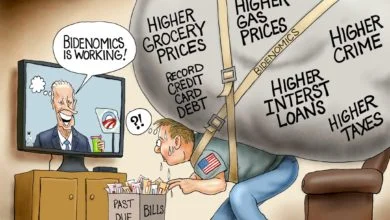Presidents change, but legacies remain: conflict in peaceful power transitions
With very little regard for partisan loyalties that play into the frenetic turnover between old and new presidential administrations, American citizens seem to inherently recognize the nation’s roughly two centuries of peaceful and regular transitions of power as something to be lauded. And rightly so. The ability of former rivals, in the electorate and the polity, to shrug off the pernicious attacks which created hard-line divisions month before and rally around the noble ideal of self-determinism through democracy should not be glossed over.
Alas, the same thing cannot be said where the legacy of outgoing regimes is concerned. Outgoing presidents often cast the different policy agendas of their successors as a direct assault against their legislative achievements. In some cases, it is true that new presidents are bent on dismantling the work of their predecessors, particularly when they are from opposing parties. However, the handing over of power to different party implies some general level of dissatisfaction with the work of the previous administration; if, as pundits are fond of saying, elections are referendums, then there is legitimacy in doing so.
But even supposing a new president has not run in direct opposition to the signature programs of the previous executive, it is well within the prerogative of the office to dismantle duly enacted law, presuming, of course, they go through the appropriate channels of power.
So why do outgoing presidents, often with the sympathetic support of the media, act as if their policies should by rights be a permanent fixture of American law, the undoing of which is not only a direct assault on their character but also a threat to the fabric of American political culture? Why do they feel they have a right to govern beyond their term, to rule from the grave, so to speak?
The tumultuous nature of the American political cycle stands in stark contrast to the bedrock of natural law upon which the nation is built. Government is designed to be hegemonic. Its permanence is intended to promote long-term social stability by providing a formal power structure which holds a monopoly on power. It is there to ensure that, even if there is breakdown in other areas of society, some standard of egalitarian justice can still be brought to bear and restore order.
The frequent upending of the entirety of the executive branch is at one and the same time paradoxical, as it introduces a chaos which is antithetical to the purpose of government as stabilizer, and brilliant. The four-year term of the presidency ensures that the long-term structure of government cannot become subjugated to personality. Even if some portion of the executive becomes the tool of a president’s ego, the long-term welfare of the nation prevails because he is soon out of power.
The problem, however, is that no similar limitation exists on the legislation or regulation a president passes. Laws can be overturned, but through coordinated efforts that are difficult to achieve because of the separation of powers; regulations are even harder to dismantle.
Thomas Paine, among the more provocative of America’s Founding Fathers, was among the few who recognized this flaw. In Volume I of Rights of Man he railed against the permanent nature which law, once enacted, possessed:
“There never did, there never will, and there never can exist a parliament, or any description of men, or any generation of men, in any country, possessed of the right or the power of binding and controuling [sic] posterity to the “end of time,” or of commanding for ever how the world shall be governed… The vanity and presumption of governing beyond the grave, is the most ridiculous and insolent of all tyrannies. Man has no property in man; nether has any generation a property in the generations which are to follow.”
According to Paine, the permanence of legislation, even when duly enacted, was essentially a temporal form of tyranny. He advocated that sunsets be attached to all bills so that each generation would have the chance to vote on the policies that governed their lives.
Given the quagmire of the modern bureaucratic state, which cannot even settle once and for all exigent issues such as the passage of a budget, the impracticality of this notion is obvious. But it encapsulates the quandary of presidential legacies.
Laws have permanence; presidents, who have ultimate yea- or nay-saying abilities on the passage of laws, feel entitled to a permanent legacy that lives on through legislation, even after their right to wield political power has expired.




